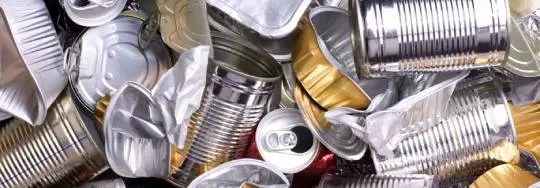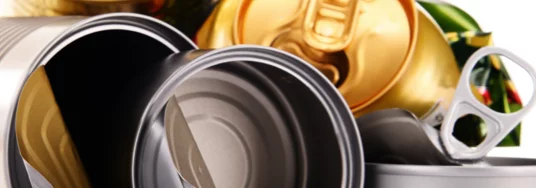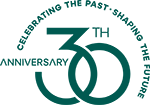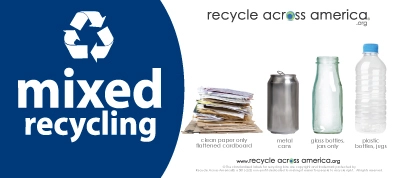
New York City
Recycling Guidelines
Reduce. Reuse. Recycle.
Mixed Recycling: Plastic, paper, metal and glass can be comingled together in your single-stream recycling collection
PLASTIC
Look for plastic items labeled #1 - #5.
- Bottles- beverage, food, etc.
- Containers- baked goods, fruit, etc.
- Cups
- Hangers
- Hampers
- Silverware
- Toys
- Rigid plastic
- Lids and caps can stay on plastic bottles
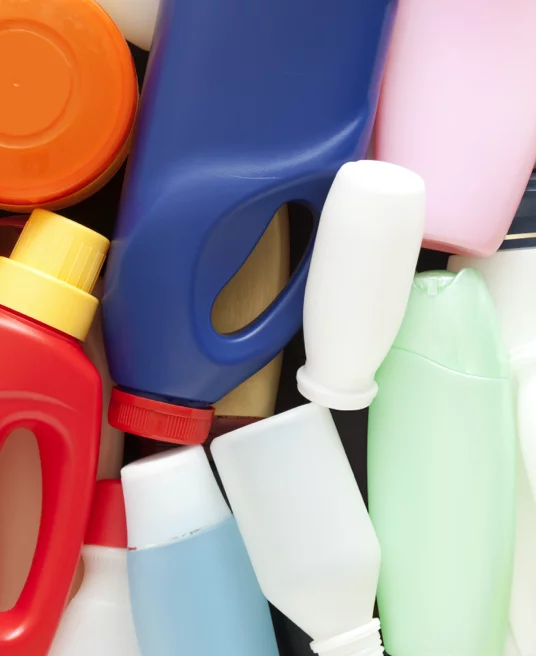
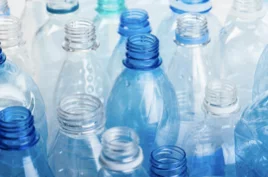
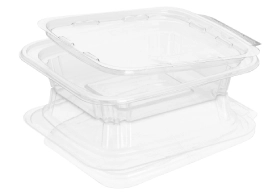
METAL
- Aluminum foil
- Cans- beverage, food, etc.
- Metal furniture- chairs, filing cabinets, etc.
- Pots and pans
- Spray paint bottles
PAPER
Look for Paper items
- Cardboard boxes- flattened moving boxes, food boxes, shoe boxes, paper towel rolls, toilet paper rolls, etc.
- Egg cartons
- Mixed paper- computer paper, office paper, unwanted mail, newspaper, magazines, catalogs, receipts, wrapping paper, etc.
- Softcover books
- Paper bags
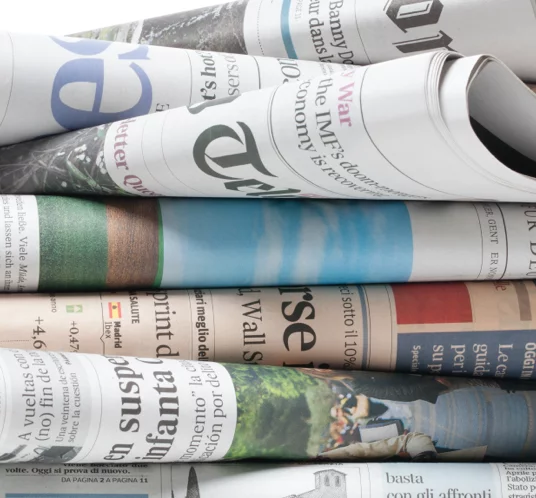
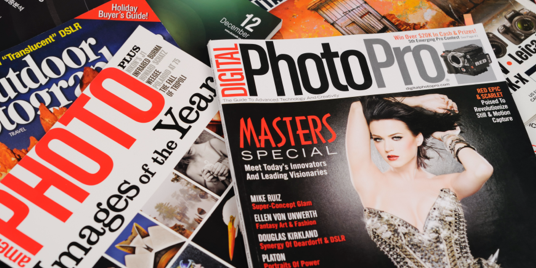
Paper can be recycled up to seven times, depending on the quality
Cardboard tubes from wrapping or toilet paper rolls
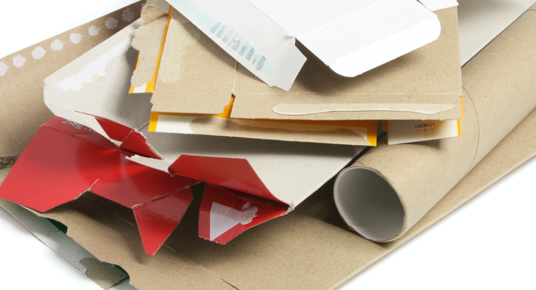
GLASS
Look for glass food jars and drink bottles
- Bottles- beverage, food, etc.
- Jars- beverage, food, etc.

OTHERS
Other items that may be recycled
- Milk, juice, other liquid cartons
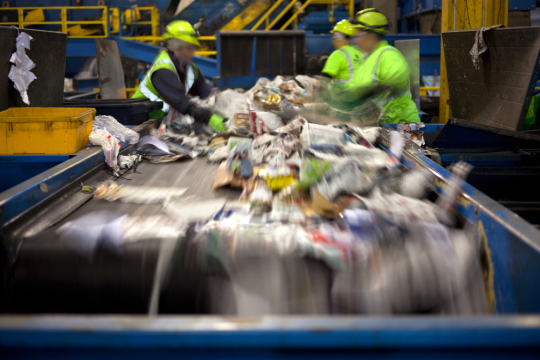
Mixed Recycling: Plastic, paper, metal and glass can be comingled together in your single-stream recycling collection
Doorstep Recycling Collection
Place acceptable recyclables in a securely tied, see-thru bag, separate from your trash and place in your bin, outside your front door with your scheduled trash collection.
When in Doubt – Toss it Out
Please do not place any unacceptable items in communal recycling containers or in your household recycling bags. Remember, if recycling contains “contaminants” (non-recyclable items or containers not properly cleaned), the whole batch may be rejected and sent to a land fill. When in doubt – best to toss it out!
What can NOT be recycled
- Food-contaminated paper
- Hardcover books
- Bubble wrap
- Batteries
- Plastic bags
- Squeeze tubes and pouches (E.G., Capri Sun juice pouches)
- Styrofoam
- Pens and markers
- Cables, wire and cords
- Photographs
- Tissues
- Napkins
- Paper plates
- Paper towels
- Tissue paper or waxed and plastic-coated paper (E.G., candy wrappers)
- Ceramics
- Windows
- Mirrors
- Organic Collection Program
- Vegetables and fruit
- Nuts
- Cereal
- Meat, fish, and bones
- Pasta and rice
- Baked goods
- Dairy products
- Eggs and eggshells
- Flour and grains
- Paper towels
- Brown paper bags
- Coffee filters and tea bags
- Paper plates
- Napkins
- Paper food boats and trays
- Lawn and leaf waste
- Yard waste
- Grass clippings
- Garden trimmings
- Leaves
- Recyclable items
- Hygiene or medical items
- Pet waste
- Plastic or foam containers
- Plastic shopping bags or cleaning products
Recycle Collection Tips
- All commercial residences are required to recycle
- Wherever there is a garbage bin, there should be a recycling bin
- Color-code your recycling program
- Provided by the city (Please check city’s glossary; Titled Recycling Materials Library)
- Create and develop a plan for how waste will be collected and set out
- This plan should comply with the following types of recycling collection
- Source-separated collection
- Co-collection
- Single-stream collection
- This plan should comply with the following types of recycling collection
- Make sure to separate your recyclables and place in clear bags separate from solid waste
- Provide education to the residents:
- Notify residents in writing what and how materials must be separated for recycling
- Post maintains at least one sign in areas where garbage is collected and/or stored indicating what materials must be separated for recycling and how they shall be collected
- Provide containers or another method of collecting recyclables in public area where these items are common
- Additional metal, glass, and plastic recyclables may also be collected for recycling if the private contractor has included as a recyclable by written agreement
- Related law to the above point: 1 6 RCNY §1-10(a)
Fines:
- All recyclables if not recycled properly are subject to:
- $100 (1st offense); $200 (2nd offense); $400 (3rd offense)
- If you do not separate recyclables (I.E., If we do not offer separation to communities, they will be fined)
- $100 (1st offense); $200 (2nd offense); $400 (3rd offense)
Multifamily-specific highlights. Check with your municipality for the latest guidelines.
- Residents must separate recyclables into mixed paper or cardboard; and metal, glass plastic or cartons. Once separated, they need to be placed in clear plastic bags or recycling bins
- NYC provides an organics collection program
- All residents that receive DSNY (The city of NY Department of Sanitation)
- All commercial businesses/commercial tenants are required by law to recycle
- Recyclables must be separated as follows: metal, glass, plastic, paper, cardboard
- It is never, under any circumstances, permitted for recyclable material to be collected in the same bag with garbage or be placed in the same compartment of a truck or container with garbage
- Property owners must notify residents, at least annually about the recycling and waste management policies of the community. These policies must be compliant to NYC rules, and a copy of this must be available upon request by DSNY
- Your business must post an official decal identifying all carters utilized.
- For more information, please visit the NYC Business Integrity Commission (BIC)
- If your business prefers to transport your own recyclables, registration must be obtained from the NYC Business Integrity Commission (BIC)
Learn more about recycling in your city.
- Recycling Laws for Residents:
https://www1.nyc.gov/assets/dsny/site/resources/recycling-and-garbage-laws/recycling-laws-for-residents - Recycling Laws for Businesses:
https://www1.nyc.gov/assets/dsny/site/resources/recycling-and-garbage-laws/recycling-laws-for-business - Contact us Link:
https://www1.nyc.gov/assets/dsny/site/contact - Laws and Regulations for Businesses:
https://www1.nyc.gov/assets/dsny/site/services/recycling/businesses-laws-and-regulations - Recycling Materials Library (Flyers, Decals, guidelines, signage, etc.): These are provided in a plethora of languages from Spanish to Haitian Creole
https://materials.bwprronline.org/home/150
For more information, please contact:
NYC Department of Sanitation Central Correspondence Unit 59 Maiden Lane, 5th Floor New York, NY 10038
If you cannot find the information you are looking for email the Commissioner- Department of Sanitation (Kathryn Garcia) https://www1.nyc.gov/nyc-resources/mail/dsny-email-the-commissioner.page
This information is not your official community or municipality guidelines. Recycling mandates may change based on the local processing capabilities and shifting markets. Contact your leasing office or local recycling agency to learn more or use the links under the “Recycling Resources"

